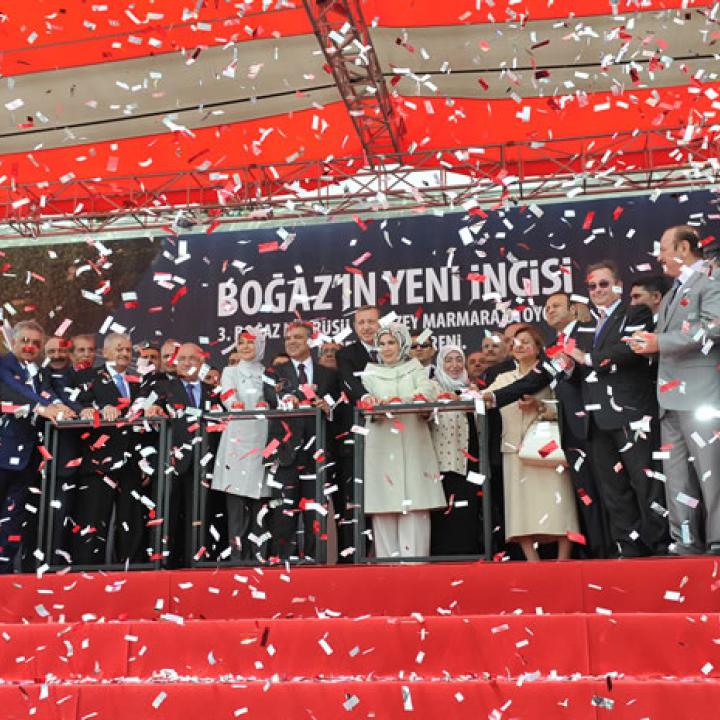
- Policy Analysis
- Articles & Op-Eds
Popularity Contest: The Implications of Turkey's Local Elections

As Turkey's presidential election approaches, a closer look at the results of the March local elections sheds light on how the country's near-term political future may unfold.
To read the full version of the following excerpt, download the PDF.
In Turkey's new four-party system, the AKP remains the dominant party. The governing party has an especially strong appeal in rural Turkey, including central and eastern Anatolian regions, and among the urban working and lower-middle classes that carried it to power. This support is likely to give Erdogan the numbers he needs to win the August presidential election. His path will be especially easy if he secures the Kurdish nationalist vote.
The main opposition CHP seems to be building an appeal to urban voters, especially those clustered in wealthy Turkish provinces around Istanbul. The MHP has emerged as 'party of the middle', making gains from disenchanted AKP supporters, centrist/centre-right voters, as well as in the middle-income provinces of the country. The BDP is crucial, despite being the smallest of the four parties with less than 7% support, mostly in the southeast. This is in part because the Turkish electorate is split between AKP supporters and opponents, and Kurdish nationalist votes have the potential to swing the outcome of the August presidential elections. As such, Erdogan will be hard-pressed to revive the peace talks that were announced in 2012. His latest electoral success gives him the mandate to do so and to make the required concessions to the Kurds.
Against a background of a new four-party system, Erdogan will need to capture Kurdish nationalist votes to be elected president in August. This suggests Erdogan will adopt a malleable attitude towards the Kurds in Turkey and the region until the polls. At the same time, Erdogan will identify new domestic opponents, such as the country's constitutional court, which has a prerogative to exercise checks and balances against the government, as well as liberals and the Gulen movement to boost his popularity as an underdog, while also suggesting that his opponents are out to undermine him and those who vote for him. This strategy will help Erdogan boost his popularity.
The US confrontation with Russia over Ukraine and Crimea makes Turkey even more important to Washington. Moreover, Erdogan is likely to make some gestures towards improving relations with Israel, for Turkey's own economic reasons and to boost his presidential bid. As such, Erdogan's 'charm offensive' on Cyprus, Israel, and the Kurds will help him restore his image in Washington...
IHS Jane's



